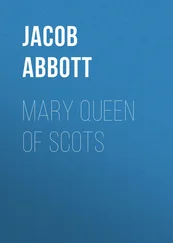Henry Bell - Life of Mary Queen of Scots, Volume 1 (of 2)
Здесь есть возможность читать онлайн «Henry Bell - Life of Mary Queen of Scots, Volume 1 (of 2)» — ознакомительный отрывок электронной книги совершенно бесплатно, а после прочтения отрывка купить полную версию. В некоторых случаях можно слушать аудио, скачать через торрент в формате fb2 и присутствует краткое содержание. Жанр: foreign_antique, foreign_prose, на английском языке. Описание произведения, (предисловие) а так же отзывы посетителей доступны на портале библиотеки ЛибКат.
- Название:Life of Mary Queen of Scots, Volume 1 (of 2)
- Автор:
- Жанр:
- Год:неизвестен
- ISBN:нет данных
- Рейтинг книги:5 / 5. Голосов: 1
-
Избранное:Добавить в избранное
- Отзывы:
-
Ваша оценка:
- 100
- 1
- 2
- 3
- 4
- 5
Life of Mary Queen of Scots, Volume 1 (of 2): краткое содержание, описание и аннотация
Предлагаем к чтению аннотацию, описание, краткое содержание или предисловие (зависит от того, что написал сам автор книги «Life of Mary Queen of Scots, Volume 1 (of 2)»). Если вы не нашли необходимую информацию о книге — напишите в комментариях, мы постараемся отыскать её.
Life of Mary Queen of Scots, Volume 1 (of 2) — читать онлайн ознакомительный отрывок
Ниже представлен текст книги, разбитый по страницам. Система сохранения места последней прочитанной страницы, позволяет с удобством читать онлайн бесплатно книгу «Life of Mary Queen of Scots, Volume 1 (of 2)», без необходимости каждый раз заново искать на чём Вы остановились. Поставьте закладку, и сможете в любой момент перейти на страницу, на которой закончили чтение.
Интервал:
Закладка:
Second , Many of the productions we have named, are purely controversial, consisting almost entirely of arguments founded upon facts, not of facts upon which to found arguments. Among these may be particularly included, Tytler, Whittaker, and Laing, works which do not so much aim at illustrating the life and character of Mary, as of settling the abstract question of her guilt or innocence. They present, therefore, only such detached portions of her history as bear upon the question of which they treat. To become intimately acquainted with Mary, we must have recourse to other authors; to form an estimate of her moral character these might suffice, were it fair to be guided on that subject by the opinions of others.
Third , In most of the works, in which historical research is fully blended with argumentative deductions, erroneous theories have been broached, which, failing to make good their object, either excite suspicion, or lead into error. Thus, Goodall and Chalmers have laid it down as a principle, that in order to exculpate Mary, it was necessary to accuse her brother, the Earl of Murray, of all sorts of crimes. By representing Bothwell, as an inferior tool in his hands, they have involved themselves in improbabilities, and have weakened the strength of a good cause by a mistaken mode of treatment. Indeed this remark applies with a greater or less degree of force, to all the vindications of Queen Mary which have appeared. Why transfer the burden of Darnley’s murder from Bothwell, the actual perpetrator of the deed, to one who may have been accessory to it, but certainly more remotely? Why confirm the suspicion against her they wish to defend, by unjustly accusing another, whom they cannot prove to be criminal? If Goodall and Chalmers have done this, their learning is comparatively useless, and their labour has been nearly lost.
If the author of the following “Life of Mary Queen of Scots,” has been able in any measure, to execute his own wishes, he would trust, that by a careful collation of all the works to which he has referred; he has succeeded, in separating much of the ore from the dross, and in giving a freshness, perhaps in one or two instances, an air of originality to his production. He has affected neither the insipidity of neutrality, nor the bigotry of party zeal. His desire was to concentrate all that could be known of Mary, in the hope that a light might thus be thrown on the obscurer parts of his subject, sufficient to re-animate the most indifferent, and satisfy the most scrupulous. He commenced his readings with an unbiassed mind, and was not aware at the outset, to what conviction they would bring him. But if a conscientious desire to disseminate truth be estimable, it is hoped that this desire will be found to characterize these Memoirs. Little more need be added. The biography of a Queen, who lived two hundred and fifty years ago, cannot be like the biography of a contemporary or immediate predecessor; but the inherent interest of the subject, will excuse many deficiencies. Omissions may, perhaps, be pardoned, if there are no misrepresentations; and the absence of minute cavilling and trifling distinctions, may not be complained of, if the narrative leads, by a lucid arrangement, to satisfactory general deductions. Fidelity is at all times preferable to brilliancy, and a sound conclusion to a plausible hypothesis.
INTRODUCTION
During the reigns of James IV. and James V., Scotland emerged from barbarism into comparative civilization. Shut out, as it had previously been, from almost any intercourse with the rest of Europe, both by the peculiarities of its situation, and its incessant wars with England, it had long slumbered in all the ignorance and darkness of those remote countries, which even Roman greatness, before its dissolution, found it impossible to enclose and retain within the fortunate pale of its conquests. The refinement, which must always more or less attend upon the person of a king, and shelter itself in the stronghold of his court, was little felt in Scotland. Though attached, from long custom, to the monarchical form of government, the sturdy feudal barons, each possessing a kind of separate principality of his own, took good care that their sovereign’s superior influence should be more nominal than real. Distracted too by perpetual jealousies among themselves, it was only upon rare occasions that the nobles would assemble peaceably together, to aid the king by their counsel, and strengthen his authority by their unanimity. Hence, there was no standard of national manners, – no means of fixing and consolidating the wavering and turbulent character of the people. Each clan attached itself to its own hereditary chieftain; and, whatever his prejudices or follies might be, was implicitly subservient to them. The feuds and personal animosities which existed among the leaders, were thus invariably transmitted to the very humblest of their retainers, and a state of society was the consequence, pregnant with civil discord and confusion, which, on the slightest impulse, broke out into anarchy and bloodshed.
Many reasons have been assigned why the evils of the feudal system should have been more severely felt in Scotland than elsewhere. The leading causes, as given by the best historians, seem to be, – the geographical nature of the country, which made its baronial fastnesses almost impregnable; – the want of large towns, by which the vassals of different barons were prevented from mingling together, and rubbing off, in the collision, the prepossessions they mutually entertained against each other; – the division of the inhabitants, not only into the followers of different chiefs but into clans, which resembled so many great families, among all whose branches a relationship existed, and who looked with jealousy upon the increasing strength or wealth of any other clan; – the smallness of the number of Scottish nobles, a circumstance materially contributing to enhance the weight and dignity of each; – the frequent recourse which these barons had, for the purpose of overawing the crown, to leagues of mutual defence with their equals, or bonds of reciprocal protection and assistance with their inferiors; – the unceasing wars which raged between England and Scotland, and which were the perpetual means of proving to the Scottish king, that the very possession of his crown depended upon the fidelity and obedience of his nobles, whose good-will it was therefore necessary to conciliate upon all occasions, by granting them whatever they chose to demand; and, lastly – the long minorities to which the misfortunes of its kings exposed the country at an early period of its history, when the vigour and consistency, commonly attendant upon the acts of one mind, were required more than any thing else, but instead of which, the contradictory measures of contending nobles, or of regents hastily elected, and as hastily displaced, were sure to produce an unnatural stagnation in the government, from which it could be redeemed only by still more unnatural convulsions.
The necessary consequences of these political grievances were, of course, felt in every corner of the country. It is difficult to form any accurate estimate, or to draw any very minute picture of the state of manners and nicer ramifications of society at so remote a period. But it may be stated generally, that the great mass of the population was involved in poverty, and sunk in the grossest ignorance. The Catholic system of faith and worship, in its very worst form, combined with the national superstitions so prevalent among the vulgar, not only to exclude every idea of rational religion, but to produce the very lowest state of mental degradation. Commerce was comparatively unknown, – agriculture but imperfectly understood. If the wants of the passing hour were supplied, however sparely, the enslaved vassal was contented, – almost the only happiness of his life consisting in that animal gratification afforded him by the sports of the chase, or the bloodier diversion of the field of battle. Education was neglected and despised even by the wealthy, few of whom were able to read, and almost none to write. As for the middle and lower orders, fragments of rude traditionary songs constituted their entire learning, and the savage war-dance, inspired by the barbarous music of their native hills, their principal amusement. At the same time, it is not to be supposed that virtue and intelligence were extinct among them. There must be many exceptions to all general rules, and however unfavourable the circumstances under which they were placed for calling into activity the higher attributes of man’s nature, it is not to be denied, that their chronicles record, even in the lowest ranks, many bright examples of patience, perseverance, unsinking fortitude, and fidelity founded upon generous and exalted attachment.
Читать дальшеИнтервал:
Закладка:
Похожие книги на «Life of Mary Queen of Scots, Volume 1 (of 2)»
Представляем Вашему вниманию похожие книги на «Life of Mary Queen of Scots, Volume 1 (of 2)» списком для выбора. Мы отобрали схожую по названию и смыслу литературу в надежде предоставить читателям больше вариантов отыскать новые, интересные, ещё непрочитанные произведения.
Обсуждение, отзывы о книге «Life of Mary Queen of Scots, Volume 1 (of 2)» и просто собственные мнения читателей. Оставьте ваши комментарии, напишите, что Вы думаете о произведении, его смысле или главных героях. Укажите что конкретно понравилось, а что нет, и почему Вы так считаете.












